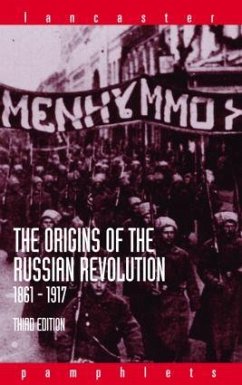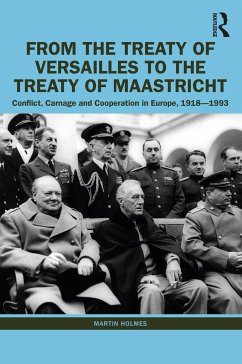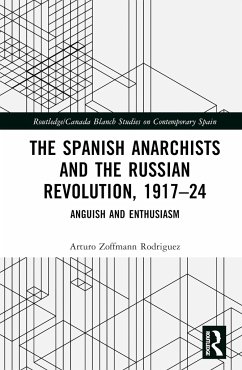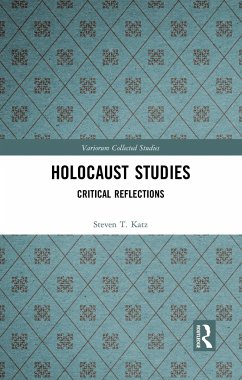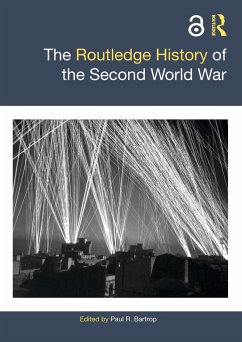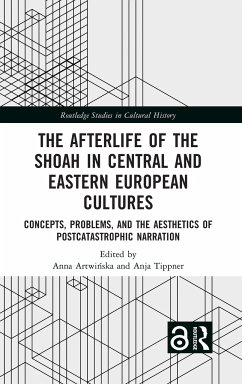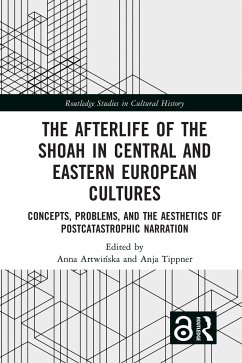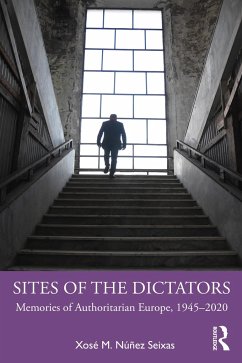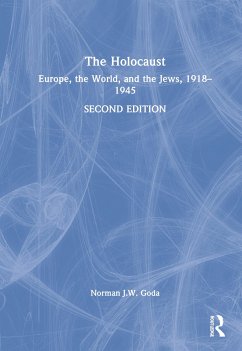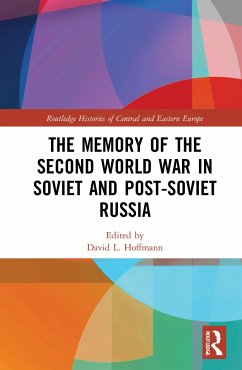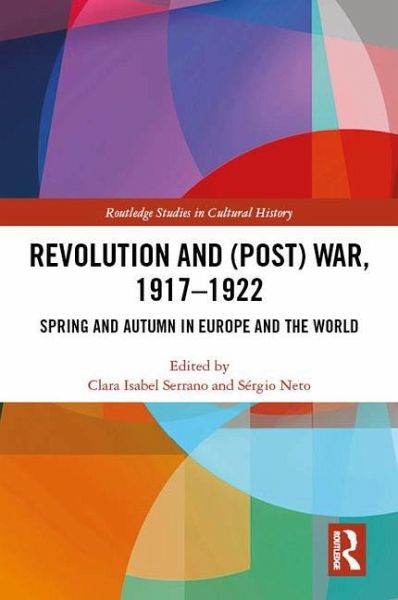
Revolution and (Post) War, 1917-1922
Spring and Autumn in Europe and the World
Herausgegeben: Serrano, Clara; Neto, Sergio
Versandkostenfrei!
Versandfertig in 6-10 Tagen
154,99 €
inkl. MwSt.
Weitere Ausgaben:

PAYBACK Punkte
77 °P sammeln!
This book focuses on the Russian Revolution of 1917, the legacy of the First World War, and Mussolini and Italian fascism - offering an important overview of the major themes of the early 20th century.Using a methodical approach and employing a wide range of sources, the nine chapters provide a re-analysis and synthesis of these three major subjects and looks at how the world was reshaped during the period of 1917-1922. This volume also discusses lesser-known subjects in Anglo-Saxon historiography: the effects of the Russian Revolution in Spain and in the Islamic world, as well as the conseque...
This book focuses on the Russian Revolution of 1917, the legacy of the First World War, and Mussolini and Italian fascism - offering an important overview of the major themes of the early 20th century.
Using a methodical approach and employing a wide range of sources, the nine chapters provide a re-analysis and synthesis of these three major subjects and looks at how the world was reshaped during the period of 1917-1922. This volume also discusses lesser-known subjects in Anglo-Saxon historiography: the effects of the Russian Revolution in Spain and in the Islamic world, as well as the consequences of the Portuguese participation in the First World War in Africa, and the German memory of that conflict. By linking these themes, this book sheds a light on how since the early 21st century we have witnessed a rise of populism and extremism.
Dealing with one of the most paradigmatic periods of Contemporary History, this book is essential for scholars and students of History, International Relations, Postcolonial Studies, and African Studies programs, as well as librarians and diplomats, and for advanced training institutions, peacebuilding organizations, international NGOs, and the wider public.
Using a methodical approach and employing a wide range of sources, the nine chapters provide a re-analysis and synthesis of these three major subjects and looks at how the world was reshaped during the period of 1917-1922. This volume also discusses lesser-known subjects in Anglo-Saxon historiography: the effects of the Russian Revolution in Spain and in the Islamic world, as well as the consequences of the Portuguese participation in the First World War in Africa, and the German memory of that conflict. By linking these themes, this book sheds a light on how since the early 21st century we have witnessed a rise of populism and extremism.
Dealing with one of the most paradigmatic periods of Contemporary History, this book is essential for scholars and students of History, International Relations, Postcolonial Studies, and African Studies programs, as well as librarians and diplomats, and for advanced training institutions, peacebuilding organizations, international NGOs, and the wider public.




